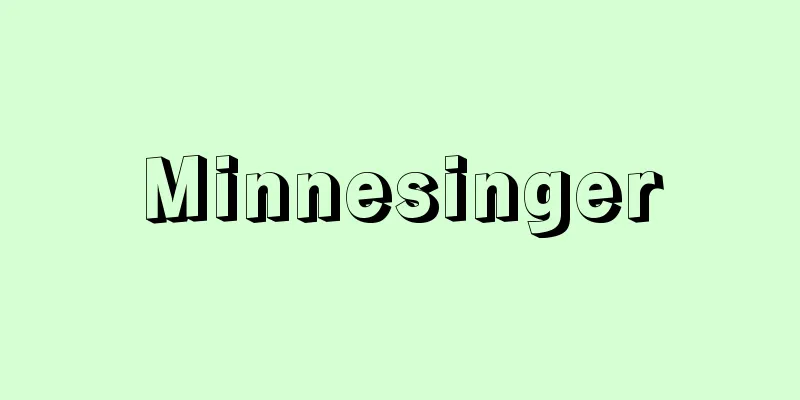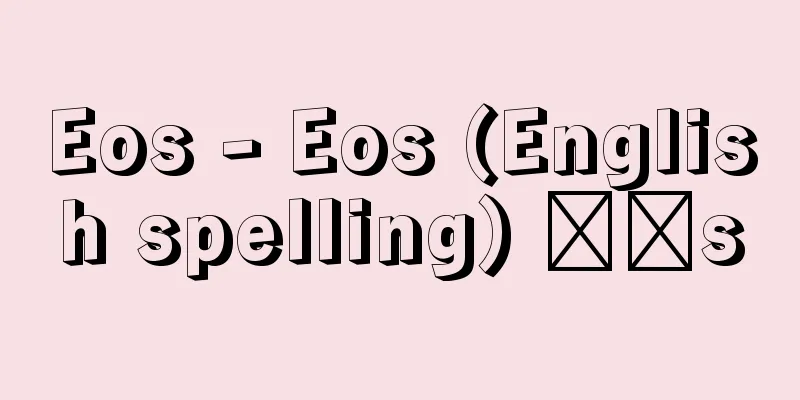French Socialist Party (English spelling) Parti Socialiste Français French

|
A center-left French political party established in 1969. Its abbreviation is PS. Its predecessor was the SFIO (Section Française de l'Internationale Ouvrière, French Section of the Workers' International), which was established in 1905 by gathering communists and social democrats. In 1920, the left-wing communist faction within the SFIO separated from it to form the new Communist Party of France. As a result, even in the post-war period, while the SFIO maintained a revolutionary orientation in its platform, in practice it was a center-left party supported by the middle class and was a part of the ruling coalition government. However, the SFIO, as the ruling party, ended up with no policy, including that of Prime Minister Guy Mollet (1905-1975), in the face of the Algerian crisis in the 1950s, and handed power over to de Gaulle, leading to a historic defeat. Under the new constitutional system that established the Fifth Republic in 1958, the left-wing forces were divided, but they sought to unify after forming an electoral alliance in the 1965 presidential election. After de Gaulle's resignation, the New Socialist Party (NPS: Nouveau Parti Socialiste) was launched in 1969, and the French Socialist Party (PS) was launched at the Epinay Congress in 1971, incorporating the former SFIO faction. [Toru Yoshida July 20, 2018] The Socialist Party under MitterrandThe 1970s was a period of rapid growth for the Socialist Party. Mitterrand, who achieved unity of the left-wing forces at the Epinay Congress and was elected First Secretary, subsequently succeeded in expanding the party's influence through joint pledges and electoral cooperation with the Communist Party. In the second half of the 1970s, the party replaced the Communist Party as the leading opposition party against the conservative and centrist ruling party. During this period, the party also won landslide victories in local assembly elections, giving rise to Socialist politicians in many cities and towns. Although party leader Mitterrand lost to centrist Valéry Giscard d'Estaing in the 1974 presidential election, he won the 1981 presidential election when the two faced off again, and won a landslide victory in the following lower house election, bringing the Socialist Party out of opposition after nearly a quarter century of long existence. Mitterrand and the Socialist-Communist government advocated "French socialism" and implemented innovative policies such as the abolition of the death penalty, decentralization, and liberalization of broadcasting, but the economic downturn caused by inflation and rising unemployment led to the withdrawal of large-scale government policies such as nationalization, and the withdrawal of socialist economic policies. As a result, the Socialist Party lost the 1986 lower house election to the RPR (Rassemblement Pour la République, Republic Union), led by Jacques Chirac, and the party system became a conservative-progressive coexistence (cohabitation) system in which the president and prime minister were of different parties, and the Socialist Party fell into opposition. Mitterrand was re-elected president in 1988, and the Socialist Party returned to power in a snap election. However, as a minority government it lacked stability, and party leaders continued to fight over policy, so the party once again became the opposition in the 1993 lower house elections. [Toru Yoshida July 20, 2018] 1995-2012The Socialist Party, together with the Communist Party and the Green Party, returned to power in the 1997 snap election under President Chirac. Lionel Jospin (1937-), a Socialist who became prime minister under the Cohabitation, ran in the 2002 presidential election, but the split in the left-wing vote gave far-right politician Jean-Marie Le Pen (1928-) an opportunity to advance to the runoff election. In the 2007 presidential election, the first female candidate, Ségolène Royal (1953-), lost to Sarkozy of the UMP (Union pour un Mouvement Populaire), making her the third consecutive presidential defeat. [Toru Yoshida July 20, 2018] The Hollande eraIn the 2012 presidential election, Socialist candidate Hollande, who was selected in an open primary, defeated incumbent President Sarkozy, and a Socialist president was born about a quarter century after Mitterrand was re-elected in 1988. Although he gained support by taking a very left-wing line in his campaign pledges, President Hollande and the cabinet of Jean-Marc Ayrault (1950-) suffered record low approval ratings, partly due to the effects of the euro crisis and the country experiencing its highest unemployment rate ever. Furthermore, Hollande rapidly lost his appeal in 2016 due to the Charlie Hebdo attack, the Paris terrorist attacks, and the refugee influx crisis from the Middle East, and he decided not to run in the 2017 presidential election. In the 2016 open primary election, the popular vote chose Benoît Hamon (1967-), who served as Minister of Education in the Cabinet, but in the presidential election he suffered a historic defeat as the Socialist candidate, receiving only 6.4% of the vote. [Toru Yoshida July 20, 2018] 2017 and afterIn place of the Socialist candidate, the two candidates who gathered the left-wing vote in the 2017 presidential election were Macron, who had served as Minister of Economy under Hollande, and Jean-Luc Mélenchon (1951-), a far-left candidate who cooperated with the Communist Party and had previously belonged to the Socialist Party. After becoming president, Macron formed a bipartisan cabinet that included Socialist politicians, which resulted in the Socialist Party being driven into a state of collapse. The Socialist Party has repeatedly experienced winning elections by presenting radical policies in its platform and policies, but being forced to adopt a more pragmatic course once it becomes the ruling party, leading to the alienation of its supporters. Unable to tolerate this contradiction, the party fell apart organizationally in the 2017 presidential election. Attention is focused on whether the party can regroup as it did in the 1970s. [Toru Yoshida July 20, 2018] "The Transformation of the Socialist Party of Mitterrand" by Toru Yoshida (2008, Hosei University Press) [References] | | | |Source: Shogakukan Encyclopedia Nipponica About Encyclopedia Nipponica Information | Legend |
|
1969年に発足したフランスの中道左派政党。略称はPS。その前身は、1905年に共産主義者や社会民主主義者を集めて発足したSFIO(Section Française de l'Internationale Ouvrière、労働者インターナショナルフランス支部)にある。SFIOからは1920年に党内左派の共産主義派が分離し、新たにフランス共産党が発足した。そのためSFIOは戦後期を含め、綱領では革命志向を残しつつも、実際には中産階級に支持される中道左派政党として連立政権与党の一角を占めていた。 しかし、与党としてのSFIOは1950年代のアルジェリア危機に対して首相ギ・モレGuy Mollet(1905―1975)を含めて無策に終わり、ドゴールに政権の座を譲り渡し、歴史的な敗退を余儀なくされた。1958年に第五共和政となった新たな憲法体制のもと、左派勢力は分裂していたが、1965年の大統領選挙での選挙連合をきっかけに、統一が模索される。ドゴールの退陣した後の1969年には新社会党(NPS:Nouveau Parti Socialiste)が発足し、さらに1971年のエピネー大会で、旧SFIO派を含む形で発足したのがフランス社会党(PS)であった。 [吉田 徹 2018年7月20日] ミッテラン時代の社会党1970年代は、社会党躍進の時代にあたる。エピネー大会で左派勢力の大同団結を成し遂げて第一書記に選出されたミッテランは、その後共産党との共通公約や選挙協力などによって、党勢拡大に成功した。1970年代後半には、共産党にかわり、保守・中道の与党勢力に対する野党第一党の地位を確立することになる。この時代には地方議会選でも大勝し、多くの市町村で社会党の政治家が誕生した。 党首ミッテランは1974年の大統領選で中道のバレリー・ジスカール・デスタンを前に敗退したものの、ふたたび両者の対決となった1981年の大統領選で勝利、続く下院選でも地すべり的勝利を収め、社会党は約四半世紀の長い野党生活から抜け出すことになった。ミッテランと社共政権は「フランスの社会主義」を掲げ、死刑廃止や地方分権、放送の自由化など革新的な政策を実現したものの、インフレと失業率上昇の景気後退により、国有化をはじめとする大きな政府路線を撤回、経済政策では社会主義路線を撤回することになる。このため1986年の下院選ではジャック・シラク率いるRPR(Rassemblement Pour la République、共和国連合)に敗退し、大統領と首相の党派が異なる保革共存(コアビタシオン)となって、社会党は野党に転落する。その後、ミッテランが1988年に大統領に再選され、解散総選挙で社会党はふたたび与党となった。しかし小数派政権として安定を欠き、党幹部同士の路線闘争も続いたため、1993年の下院選ではふたたび野党へと転じた。 [吉田 徹 2018年7月20日] 1995~2012年社会党が共産党や緑の党などとともに、与党に返り咲くのは、大統領シラクのもとで行われた1997年の解散総選挙によってであった。コアビタシオンのもとで首相となった社会党のジョスパンLionel Jospin(1937― )は、そのまま2002年の大統領選に挑むものの、左派票の分裂によって極右政治家ジャン・マリ・ルペンJean-Marie Le Pen(1928― )に決選投票進出のすきを与えてしまった。2007年の大統領選でも初の女性候補ロワイヤルSégolène Royal(1953― )がUMP(Union pour un Mouvement Populaire、国民運動連合)のサルコジ候補に負け、三度続けて大統領選で敗北する憂き目にあう。 [吉田 徹 2018年7月20日] オランド大統領の時代2012年の大統領選では、公開予備選で選ばれた社会党のオランド候補が現職大統領サルコジを降(くだ)し、ミッテランが大統領再選を果たした1988年から約四半世紀を経て、社会党の大統領が誕生した。もっとも、公約ではきわめて左派的路線を色濃くして支持を集めたものの、ユーロ危機の影響から過去最高の失業率を経験したこともあって、大統領オランドおよびエローJean-Marc Ayrault(1950― )内閣は、記録的な低支持率にあえぐことになった。さらに2016年のシャルリー・エブド襲撃事件やパリ同時多発テロ、中東からの難民流入危機などにみまわれ、オランドは求心力を急速に失い、2017年の大統領選への不出馬を決めることになった。2016年の公開予備選で一般有権者の票で選ばれたのは内閣で教育担当相を務めたブノワ・アモンBenoît Hamon(1967― )であったが、大統領選では6.4%と、社会党候補者として歴史的な敗北を喫した。 [吉田 徹 2018年7月20日] 2017年以降社会党の候補にかわって2017年の大統領選で左派票を集めたのは、オランドのもとで経済相を務めていたマクロン候補、共産党と協力し、かつて社会党に在籍していた極左のメランションJean-Luc Mélenchon(1951― )候補であった。大統領となったマクロンは社会党政治家を含む形で超党派内閣を発足させ、その結果社会党は壊滅状態に追いやられている。 社会党は綱領や政策では急進的な方針を掲げて選挙を勝ち抜くものの、政権与党になると現実主義路線をとらざるを得なくなり、支持者が離反するという経験を繰り返してきた。その矛盾に耐えられず、組織的に空中分解してしまったのが2017年の大統領選であった。ふたたび1970年代のように勢力を再結集することができるかが注目される。 [吉田 徹 2018年7月20日] 『吉田徹著『ミッテラン社会党の転換』(2008・法政大学出版局)』 [参照項目] | | | |出典 小学館 日本大百科全書(ニッポニカ)日本大百科全書(ニッポニカ)について 情報 | 凡例 |
<<: Union coloniale française (French Colonial Society)
>>: Archives Nationales of France
Recommend
Gu Xiancheng
A leader of the group known as the Donglin School...
air pocket
...It is also likely to occur in jet stream areas...
Various schools - Kakushu Gakko
The School Education Law, which provides general ...
Fractional Equation
An equation that contains a fractional expression...
Ensingen, U.von (English spelling) EnsingenUvon
… [Masayoshi Uozumi] [Ulm Cathedral] A representa...
faqih (English spelling) faqih
...Ulama therefore refers to scholars of religiou...
editor
...However, while such a system remains in small ...
living will
...The aforementioned Tokai University Euthanasia...
Khwarizm (English spelling)
…The name refers to the area of the lower Amu D...
Wind abrasion
… Landforms caused by wind, like those caused by ...
Tea boy - Chabouzu
A job title for samurai in the Muromachi, Azuchi-...
Early planting cultivation - Hayauesaibai
This is a cultivation method in which crops are tr...
barbe
…In the 14th century, there was a hood called a w...
Archetype - Genkei
Archetype : A Jungian term. A psychic structure th...
Contractile
…Coelenterates and echinoderms do not have any or...









